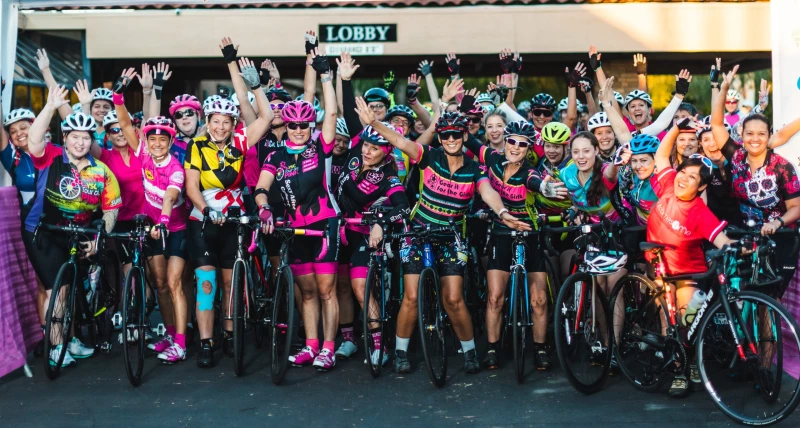Recently, YSC posted a question on our Facebook page about sex and intimacy in the wake of a breast cancer diagnosis. Many young survivors chimed in with their struggles and frustrations. In light of this robust discussion, let’s consider some tips and tools to help young survivors with issues around sex and intimacy.
First, know that it is very common for young women affected by breast cancer to experience difficulties with sex and intimacy. Many facets contribute to this: sexual spontaneity no longer existing; treatment’s impact on sexual libido; surgery’s impact on a young woman’s body identity; and fear of rejection. Any one of these are intimacy roadblocks. Frequently, most of these are part of the mix.
Sex and intimacy can be interrupted by a cancer diagnosis on multiple levels. Breast cancer treatment often involves being placed into early menopause. Survivors express that their bodies have betrayed them. Oncologists are not equipped to have conversations about how to sustain intimacy during cancer when a patient has an existing partner much less addressing this subject with single young women. Even the realization that intimacy has skipped town may not show up until after treatment has finished. This can feel out of place and confusing and cause further isolation and fear.
Reconnecting with your body can help
Changes to body image can make a big impact on sex and intimacy, particularly if there were pre-existing struggles with it. Bodily changes during cancer can deepen these struggles or news ones can surface for the first time. Here a young woman is fighting a life-threatening illness, and, on top that, her self-esteem is impacted by changes, sometimes dramatic ones, that are outside of her control.
While facilitating Getting Your Groove Back: Re-Establishing Intimacy after Cancer, a six week, in-person workshop focused on young women primarily reconnecting with and reclaiming themselves, members completed a journal exercise called “Dialogue.” This journal exercise is based on the work of Kathleen Adams, the Director for the Center of Journal Therapy.
The exercise was a written conversation between the young woman and her body. The results were revealing, sometimes quite emotional, and shifts happened even in the short amount of time we worked on the exercise. As one participant reflected, “I need to do a lot less bitching and a whole lot more cherishing.”
If you’d like to try it, set a timer for five minutes. In your journal, set up the conversation as you would a script. Thank your dialogue partner at the beginning and at the end. A way to close the conversation would be to say “is there anything more right now?” After the five minutes, look back and reflect. Any surprises? Same old-same old (which is still good information to reveal patterns)? Anything curious? Here’s what it looks like:
Me: Hi, thanks for meeting me today.
Body: Oh sure, I’m always available
Embrace creativity
Survivors in relationships are struggling with this frontier as much as women who are single and dating. I think it’s important to see it that way: a frontier. Young women have to be pioneers about finding new ways to create intimacy and connect. It is important to remember that this frontier is not ever a one-size-fits-all situation. Creativity, opportunity and permission to be awkward will be there, too. That is all okay.
“Young women have to be pioneers about finding new ways to create intimacy and connect.”
Lillie Shockney recounts this very thing in her book Stealing Second Base: A Breast Cancer Survivor's Experience And Breast Cancer Expert's Story. In it, she describes how her husband booked them a weekend away to prove a hypothesis: if one erotic zone is lost, another one may become more intensified. Apparently, their research was met with successful outcomes (p. 39).
Address the full range of your emotions - including fear and anger
I find in working with young women affected by breast cancer that there is a great deal of understandable anger that eventually surfaces. The cry is something like “I just want my life back!”
Fear is, of course, another common feeling. A journal exercise is free-writing on “what I make up about my body.” Writing for 5-7 minutes on this topic and then reflecting on it has proven to be a worthy endeavor, particularly when working in a group and teasing out what is real and what is fear. Working towards acceptance is a tender goal. A longer, facilitated exercise is spending time on the topics of sex, intimacy and love and untangling these three separate but related areas.
Ask for help
There’s no one good, right time to consider therapy. I am a fan of recommending help and getting it sooner rather than later. Getting and receiving help can provide space for fearful things to be said and heard, the opportunity for healing to take place sooner and ideas for finding new ways to create intimacy. Look for a therapist here. If no one local is listed there, call the national office. Another idea is to connect with your oncology social worker for a community referral.
YSC has several resources on this important topic. Here are a few to get you started:
Getting Your Groove Back - Inviting Intimacy and Sex Back into Your Life



